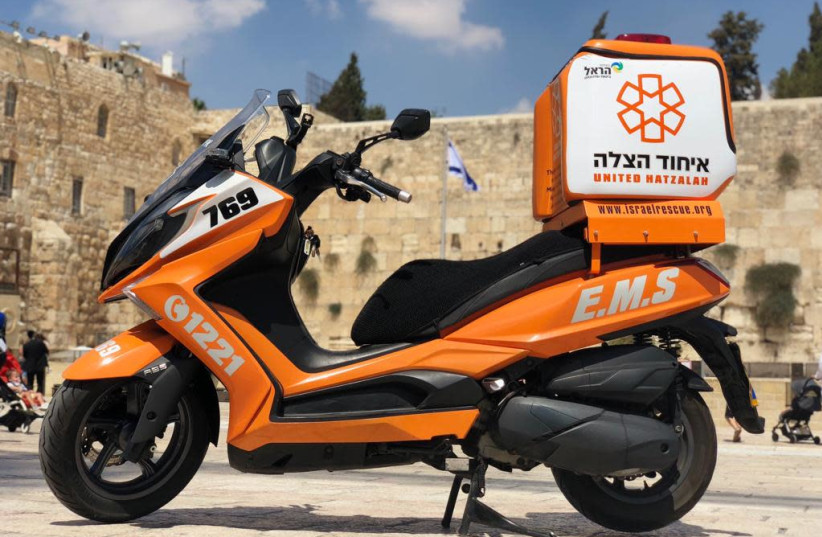I noticed it the moment I entered the cab: a bright orange vest with the logo of United Hatzalah of Israel—an Israeli volunteer emergency medical organization—and text reading ‘Medic.’
I asked the driver about it.
He told me that he’s one of about 140 Arab Hatzalah volunteers in Jerusalem, almost all of them residents of the predominantly Palestinian eastern part of the city.
I asked him what inspired him to join an organization founded by Orthodox Jewish activists and still largely run by observant Jews.
'I just want to help people'

“I just want to help people,” he told me.
He said that, driving through Jerusalem, he is often among the first to come across car crashes and other accidents and was frustrated by his inability to help the victims. So three years ago, he joined Hatzalah, and between the emergency calls he answers in his taxi and those to which he responds as an ambulance driver, he sometimes finds himself at dozens of medical incidents a day.
“Let me tell you a story,” he said as we drove past a chain of people carrying Israeli flags in protest of the government’s judicial reform.
He told me about an incident just last week in which a call came in about a Palestinian infant who was experiencing cardiac arrest in Silwan, a Palestinian neighborhood in eastern Jerusalem that often experiences friction between residents and Israeli security forces. He rushed to the scene to find that another crew was already treating the child – a group of volunteers from the right-wing Jewish enclave in the neighborhood.
He opened his phone’s photo album (we were stopped at a traffic light) and showed me images of himself receiving an award from the organization’s founder, Eli Beer, and several rabbis for his responsiveness on Shabbat, when he is more readily available than some Jewish volunteers.
“That’s what this organization is about,” he said. “It doesn’t matter who you are and it doesn’t matter who the patient is. We’re here to help everyone: Jews, Arabs, secular people, religious people, right, left. Everyone.”
As we pulled up outside my office, I thanked him for starting my week—a week in which Israel is likely to be shaken by painful, powerful debates, and which ends with Tisha Be’av, a fast day on which we lament the destructive results of our internal discord—on a hopeful note, a note of unity.
